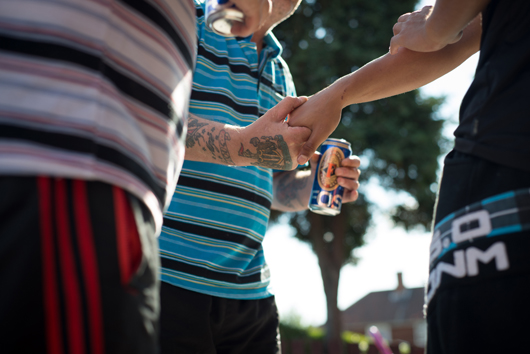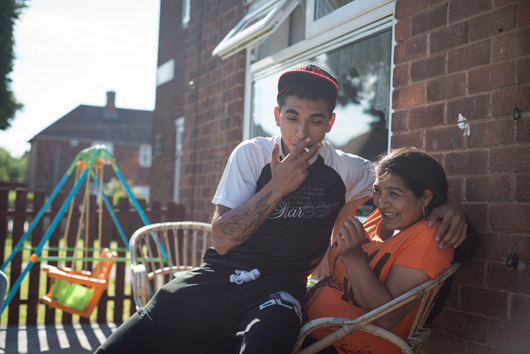
My default position in life and work, I’ve realised, is “I can’t do that” – plus, quite often, some associated panic. I’m not sure where my terminal lack of confidence comes from, no doubt it’s partly nature but I suspect it’s also some parts nurture – some very negative experiences with managers in my early jobs plus some terror associated with being self-employed, which I find hard. I don’t remember being so anxious as a child. On balance I know deep down I’ll get things done competently and on time but I’ve never felt properly confident at the start or even partway through projects, even when I’ve had positive feedback along the way. Perhaps though this is for the best – there are few things more off-putting to me than arrogance, and I’d always prefer to be thought of as humble than above my station. The resulting work should speak for itself.
Even after several years of spending time inside Roma families and collaborating with them – something I often doubted I’d pull off at the start when it took me a long time to win anyone’s trust, I feel unsure about what I’m doing a lot of the time. My work with Ramona felt largely like a fluke for a long time – I was incredibly lucky to find someone as trusting and open, and natural with the camera. Managing to win Arts Council funding and a Homelands commission from Side Gallery early last year felt similarly flukey, and both were followed by months of despair and doubt as I wondered how to translate this opportunity into a concrete body of work. While photographers often talk about self doubt I rarely hear people admitting to the levels of anxiety and sometimes minor depression I often feel about my work, both in trying to negotiate access, feeling good about what I’m doing and the integrity of my motivations and the quality of what comes out.
The Homelands commission was intended to be a short project of just a few months’ duration but once I finally found a family to work with it took me a long time to really find my place – this is more I suspect to do with my own sensitivities than theirs. I’d probably keep going forever if I could because I love their company, yet I’d doubtless never feel like I’d really captured what I wanted to or what I felt. A deadline has now been imposed though – the work is going to be exhibited in Newcastle in October. I don’t feel ready of course, I don’t feel I’ve even scratched the surface, but I guess I’d always feel like this. A deadline is needed to force me to confront those work prints and develop a coherent edit, not definitive because that’s impossible, but coherent and honest at least. If the family will allow me to I will continue to visit them beyond this time and long into the future as I think this is where the work could really become interesting.
